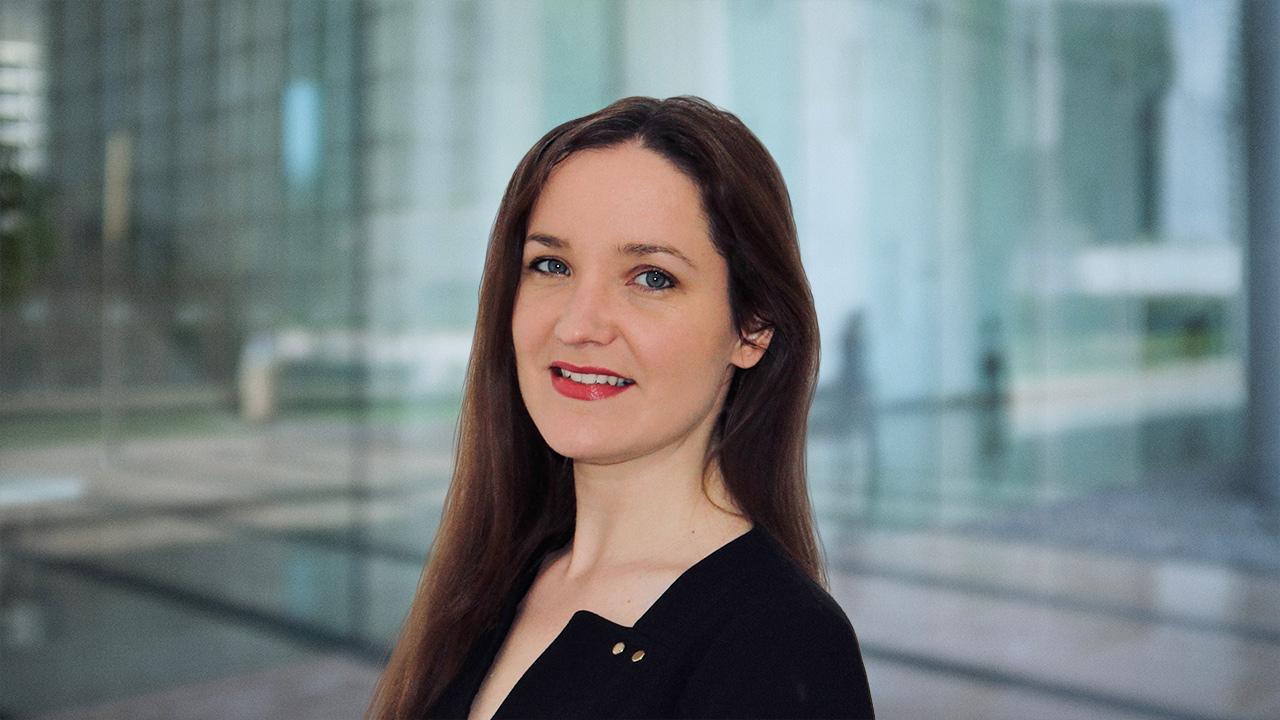
Victoria Brayshaw is the head of civil engineering and an experienced framework director in Tetra Tech’s UK division, supporting innovative, nature-based solutions to mitigate flood risks.
She is a fellow of the Institution of Civil Engineers (ICE) and leads a national team of engineers, designers, and flood risk management consultants. She has been involved with ICE for more than 20 years, including as an ambassador, a supervising civil engineer, and a branch chair.
As a framework director, Victoria leads our United Utilities strategic solutions team. In partnership with United Utilities, the team is delivering a first-of-its-kind spill reduction program in the northwest of England, combining traditional engineering with smart sewers and nature-based solutions.
Victoria also holds a role on our senior leadership team as our technical development lead where she chairs our technical development steering group, which is focused on technical excellence across all disciplines.
Outside of Tetra Tech, Victoria is a volunteer mentor for women in construction.
What are the key trends and challenges shaping the water industry in the UK?
The 2023-24 storm season has been highly active across the UK, and studies indicate that we can expect further increases in both the frequency and the volume of storm rainfall. We must become more resilient. When exceedance events happen, and they do happen, they can be devastating.
Our rivers are far from healthy, and storm overflows are a contributing factor. The latest river health assessments show that none of England’s river stretches are in good overall health, and 23 percent are in poor or bad overall health. Water companies have come under significant pressure from the government and the public.
The industry must urgently deliver solutions that meet the needs of today while being resilient to the needs of the future. This cannot be achieved using traditional engineering alone, and there is a need for a strategic approach, incorporating advanced technologies and nature-based solutions.
How are we addressing the challenge?
We are undertaking project categorization, complexity assessments, and rapid options assessments as part of our strategic approach to identify complex solutions early. This might involve a level of complexity in design or construction that necessitates specialist knowledge, skills, or equipment. We need more time to develop the right solution for these overflows that benefit from early planning. Our team of experts work collaboratively to collect data, scan options, model scenarios, develop solutions, and select preferred solutions and delivery pathways. We’re taking a basin-wide, or catchment approach, to realize wider benefits.
Is the use of advanced technologies in water a necessity due to an increase in extreme rainfall?
Tetra Tech has industry-leading experience in the design and implementation of solutions using real-time control (RTC) solutions with advanced forecasting capabilities. This approach both optimizes network performance and alerts emergency response teams as required. We are already developing options using this technology for water utilities in the UK. An essential part of our process is identifying when advanced solutions are appropriate and how to integrate these solutions into system-wide approaches. With advanced technologies, we can deliver innovative solutions today while providing actionable insights for the future.
As a framework director, Victoria leads our United Utilities strategic solutions team. In partnership with United Utilities, the team is delivering a first-of-its-kind spill reduction program in the northwest of England, combining traditional engineering with smart sewers and nature-based solutions.
How do we combine traditional engineering with smart sewers and nature-based solutions?
Mapping project and program uncertainties to outcomes and outputs is a key first step. Traditionally, big engineering solutions such as tunnels, shafts, tanks, and oversized pipes have been used to manage flows. But there are other solutions available with wider benefits.
The use of smart sewers enables us to gain real-time, actionable insights and to leverage advanced analytics and machine learning while making best use of existing assets and funding. The modernization of our sewers also will provide valuable insights for future investment programs.
Nature-based solutions are an umbrella term for a range of activities which utilize natural processes. These solutions not only reduce the quantity of runoff, they also improve water quality and can provide biodiversity and amenity value. A collaborative approach is required to realize benefits at scale, and we are already witnessing some early wins.
How are we helping our clients manage program-level uncertainty?
We are developing a decision-making framework for one of the largest water companies in the UK that delivers what if scenario analysis and next best decision-making. This is a tailor-made framework for change and subsequent prioritization to make best use of available effort and resources, taking a one-team approach to collective resources.
We are providing baselining, outcome tracking, program risk insight, and evidence with an opportunity to update actuals and forecasts. This will provide evidence to position the program with stakeholders and address issues early, preventing wasted time and delays.
This is the most ambitious spill reduction program ever proposed across the northwest of England, bringing unique challenges as we navigate new regulatory rules, financial pressures, and a changing climate. Supporting and leading a highly motivated team to bring innovation to those challenges is deeply rewarding and is exactly what I joined Tetra Tech to do.